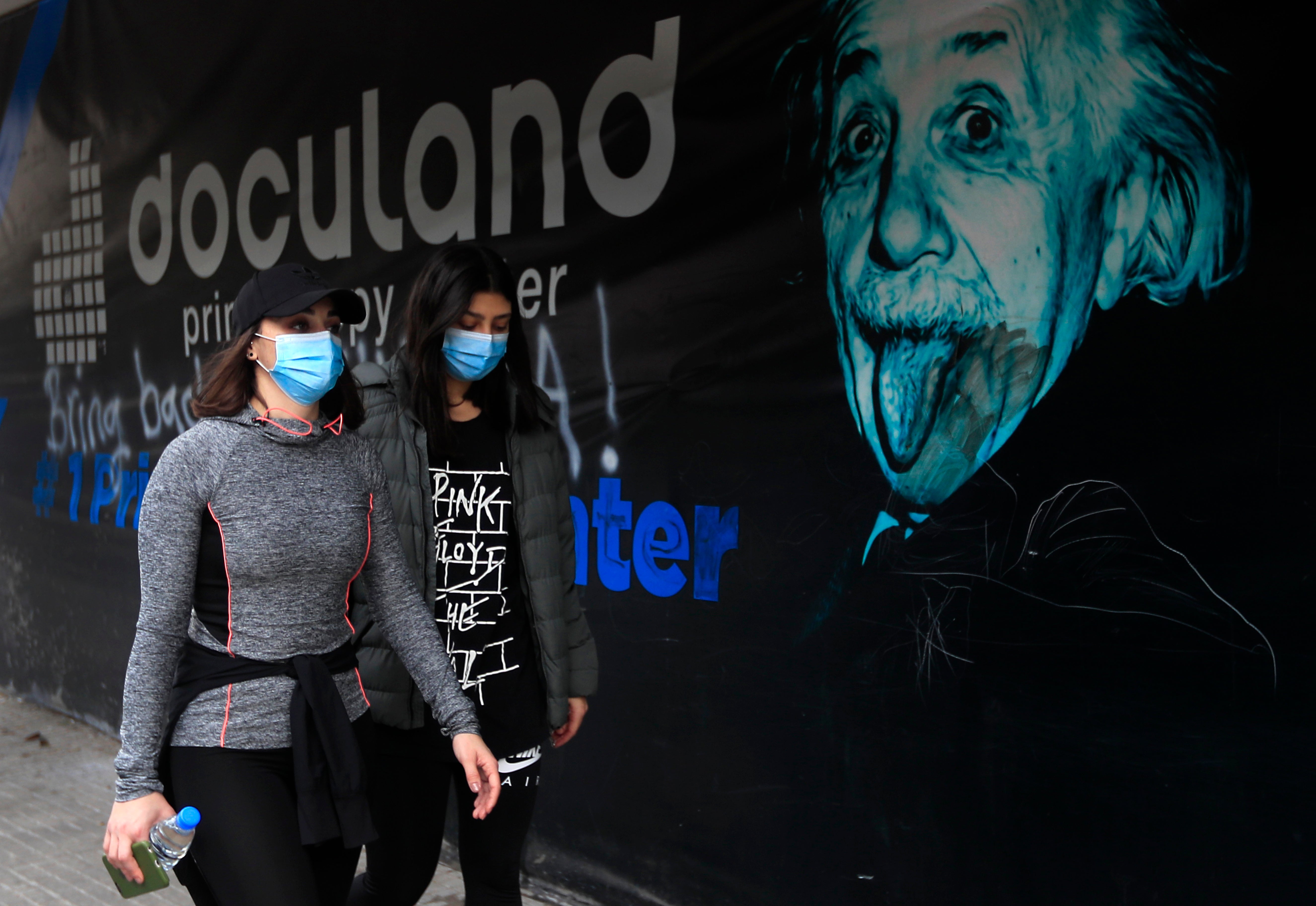Protesters in Lebanon clash with police over virus lockdown
Lebanese security forces have fired tear gas and water cannons in clashes with dozens of protesters who took to the street in the country’s north for a third consecutive day

Your support helps us to tell the story
From reproductive rights to climate change to Big Tech, The Independent is on the ground when the story is developing. Whether it's investigating the financials of Elon Musk's pro-Trump PAC or producing our latest documentary, 'The A Word', which shines a light on the American women fighting for reproductive rights, we know how important it is to parse out the facts from the messaging.
At such a critical moment in US history, we need reporters on the ground. Your donation allows us to keep sending journalists to speak to both sides of the story.
The Independent is trusted by Americans across the entire political spectrum. And unlike many other quality news outlets, we choose not to lock Americans out of our reporting and analysis with paywalls. We believe quality journalism should be available to everyone, paid for by those who can afford it.
Your support makes all the difference.Lebanese security forces fired tear gas and water cannons in clashes Wednesday with dozens of protesters who took to the street in the country s north for a third consecutive day to denounce deteriorating living conditions amid a strict lockdown to prevent the spread of the coronavirus.
Meanwhile, Lebanon hit a new daily record for COVID-19 fatalities, registering 76 deaths. Daily infections have soared in recent weeks and hospitals have struggled with COVID-19 patients, reporting near full occupancy in ICU beds. Nearly 290,000 infections have been recorded since last February and 2,553 deaths.
To respond to the crisis, the government has imposed a nearly month-long nationwide lockdown and round-the-clock curfew, the strictest since the virus hit Lebanon.
The measures have exacerbated a crippling economic and financial crisis that preceded the pandemic in this small Mediterranean country of nearly 5 million people and over 1 million refugees. The Lebanese currency has tumbled, losing over 80% of its value. Banks have imposed controls on withdrawals and transfers to protect dwindling foreign reserves. Unemployment and inflation have skyrocketed.
On Wednesday, dozens of protesters took to the streets for the third straight day in Tripoli, Lebanon’s second largest city and the most impoverished, demanding an end to the lockdown. Some tried to torch vehicles and were beaten back by security forces firing tear gas and water cannons. At least 20 were injured by tear gas and were treated on the spot.
The protests are also a reflection of frustration at politicians who have been deadlocked over the formation of a new government for nearly six months. The government resigned in August following a massive blast at Beirut s port, which killed over 200 people and injured thousands.
Lebanon’s ruling class has faced rising popular anger since protesters took to the streets in October 2019, in the largest-ever nationwide protests in the country. Demonstrators accused them of mismanaging and robbing the country of its resources and driving it into poverty. The protests later died down, in part because of the pandemic but also because the political class held on to power and divisions emerged among the demonstrators.
On Wednesday, Lebanese officials unveiled the national vaccination plan, saying the government aims to inoculate around 80% of the population by the end of the year. The first batch of Pfizer-BioNTech vaccines is scheduled to arrive in Lebanon by mid-February.